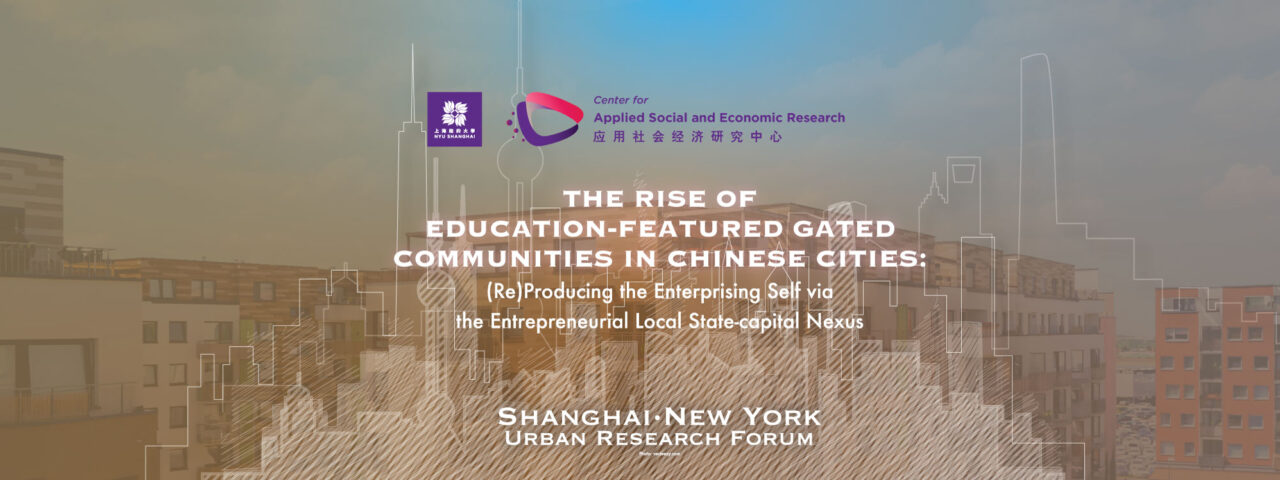Share:
The Rise of Education-featured Gated Communities in Chinese Cities: (Re)producing the enterprising self via the entrepreneurial local state-capital nexus

- Shenjing He, The University of Hong Kong
- 8:00-9:30 pm, Thursday, February 24, 2022 (CST)
- Seminar hosted via Zoom
Abstract
Since the 1990s, an emerging form of gated communities (GCs) packaging K-12 schools with tailor-made residential services, termed education-featured gated communities (edu-featured GCs) by the author, has transformed the residential and education landscapes in Chinese cities. Drawing on an empirical investigation mainly in the birthplace of edu-featured GCs, Guangzhou, this research examines how the entrepreneurial local state leverages private investments and orchestrates the (re)production of the enterprising self to give rise to edu-featured GCs. Specially, the entrepreneurial state strategically forms nexus with private capital at different stages to serve different (re)development priorities and thus gives rise to various types of edu-featured GCs. Meanwhile, the enterprising self is forged by a process of neoliberal responsibilisation of individuals to produce a competitive labour force feeding into the needs of domestic economic restructuring and global capitalism. Middle-class households seemingly harvest a great fortune through their investment in education and housing markets, yet they are involuntarily being mired in a vicious circle of ‘involution’ that reproduces the enterprising self in a hypercompetitive manner. Foregrounding the indispensable role of the state in shaping the new residential form entwining housing and education choices, this study epitomises how education and housing offer critical prisms to examine broader and more profound urban issues. It enriches the scholarship of critical geographies of education through introducing a four dimensional—upward-, downward-, outward-, and inward-looking prism.

